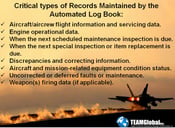
Everyone knows how the modern tech industry was born: Steve Jobs designed the Apple computer and the Mac, Bill Gates designed Windows, and the rest is history.
Well, not quite. As James Temple points in an excellent series of articles on re/code, the modern software industry was born in Boston, before shifting out west to Seattle and Silicon Valley.
At the center of the software revolution was a visionary who is now Alpha Software's Chief Technology Officer, Dan Bricklin. In this first of a two-part blog post based on Temple's articles, we look at the minicomputer and the role that Bricklin played in it.
The Death of the Minicomputer
The first big wave of Boston tech were driven by minicomputers, built by companies such as Digital Equipment Corp. (DEC), which were smaller, less expensive and easier to program and maintain than IBM's behemoth mainframes. By introducing these new types of computers, DEC became the second largest computer company in the world, second only to IBM. In the 1960s and 1970s, DEC reigned supreme in the minicomputer world, and drew people from all over the world to join the tech boom. One of them was Bricklin, who worked at DEC between 1973 and 1976.
Bricklin was caught up in the ferment of the beginning of the computer revolution. Remembering those days, he said to Temple, "It was really cool times. It was really exciting...We could share a computer among many people. We could use them for real things. I could use them to write my thesis with."
DEC had built its success on IBM's failure to see the next wave of computing — minicomputers. But Bricklin found DEC hadn't learned from its own successes, and was ignoring the third wave of computing — small personal computers. Bricklin told Temple, "At DEC, I remember asking, I think at a shareholders meeting: 'What about small computers?' Because we had one that actually ran Basic, I think. [DEC Chief Executive] Ken Olsen was talking about wheelbarrows versus pickup trucks. Classical 'Innovator's Dilemma.' He knew he was selling to engineers, and they wanted the bigger ones."
So DEC ignored personal computers. That eventually led to DEC's demise and eventual buyout by Compaq — a company built on the sales of personal computers.
But a revolution was born out of the ashes of DEC and other minicomputer companies — the modern software industry. In the second part of this series, we'll look at how Bricklin and others launched that revolution, and how his discoveries are powering new approaches to mobile app development at Alpha Software.
The tech revolution was born in Boston, not Silicon Valley, as James Temple points out in an excellent series of articles about Boston and tech on re/code, and summarized in the first blog post in this two-part series. In this second, concluding post, we look at how the modern software industry was born in Boston, in large part by the creation of the first spreadsheet by Dan Bricklin, now Alpha Software Chief Technology Officer.
Bricklin had left the minicomputer company Digital Equipment Corp. (DEC) in the late 1970s to get an MBA at Harvard Business School. He came up with the idea for a spreadsheet while in a class at Harvard. He told Temple: "You sit in business-school class, and they're just running numbers. How much do we spend on this? And how much on this? And next year what's it going to be? If you're used to doing that kind of stuff on a blackboard, you say, 'Well, let's try programming it.' My friend Alan, with his programmable calculator, always beat me, even though I'd run down and had this whole DEC PDP-10 [minicomputer] downstairs. I thought, 'Well, maybe if it was only as easy as it is with word processing, if we had word processing with numbers.'
"I ended up with a vision of the spreadsheet."
Launching the Software Industry - Dan Bricklin and VisiCalc
That vision launched the modern software industry. After graduation, Bricklin decided to build a product and a company around the spreadsheet concept. In the fall of 1978 he borrowed an Apple II from an acquaintance and using BASIC, prototyped the concept over a weekend. He called it VisiCalc.
In January 1979, he and his friend Bob Frankston formed a company called Software Arts to sell VisiCalc. Frankston did the programming for it, based on Bricklin's prototype. Even though personal computers had yet to be sold in large numbers, 1,000 copies of VisiCalc sold each month during the first year — an astounding number for its time. Its success spurred many other companies to start selling software for personal computers. The modern software industry was born.
The power of the spreadsheet, in turn, spurred the growth of the personal computer industry. Bricklin told Temple, "Apple has acknowledged that VisiCalc was a catalyst, a major catalyst, to the success of Apple in business."
Eventually, Microsoft would come to dominate the spreadsheet and software suite market. But Microsoft's success, and the continuing boom in Silicon Valley, was due to what was first birthed in Boston — the spreadsheet as envisioned by Bricklin. Now Bricklin has focused his experience in user experience and visualization on improving the usability of business apps for Alpha Software.








Comment